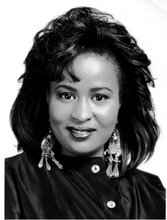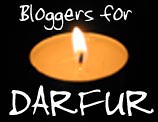A rapper said that he would not help the police even if a serial killer lived next door to him because it would hurt his business and violate his code of ethics?
According to a Drudge Report article of April 20, 2007 (www.drudgereport.com): "Rap star Cam'ron says there's no situation -- including a serial killer living next door -- that would cause him to help police in any way, because to do so would hurt his music sales and violate his 'code of ethics.' Cam'ron, whose real name is Cameron Giles, talks to Anderson Cooper for a report on how the hip-hop culture's message to shun the police has undermined efforts to solve murders across the country. Cooper's report will be broadcast on 60 MINUTES Sunday, April 22 (7:00-8:00 PM, ET/PT) on the CBS Television Network.
"'If I knew the serial killer was living next door to me?' Giles responds to a hypothetical question posed by Cooper. 'I wouldn't call and tell anybody on him -- but I'd probably move,' says Giles. 'But I'm not going to call and be like, "The serial killer's in 4E.:"' ( For an excerpt of Giles' interview, click here....
"Rappers appear to be concerned about damaging what's known as their 'street credibility,' says Geoffrey Canada, an anti-violence advocate and educator from New York City's Harlem neighborhood. 'It's one of those things that sells music and no one really quite understands why,' says Canada. Their fans look up to artists if they come from the 'meanest streets of the urban ghetto,' he tells Cooper. For that reason, Canada says, they do not cooperate with the police.
Canada says in the poor New York City neighborhood he grew up in, only the criminals didn't talk to the police, but within today's hip-hop culture, that's changed. 'It is now a cultural norm that is being preached in poor communities....It's like you can't be a black person if you have a set of values that say "I will not watch a crime happen in my community without getting involved to stop it,"' Canada tells Cooper.
Young people from some of New York's toughest neighborhoods echo Canada's assessment, calling the message not to help police 'the rules' and helping the police 'a crime' in their neighborhoods. These 'rules' are contributing to a much lower percentage of arrests in homicide cases -- a statistic known as the 'clearance rate' -- in largely poor, minority neighborhoods throughout the country, according to Prof. David Kennedy of the John Jay College of Criminal Justice. 'I work in communities where the clearance rate for homicides has gone into the single digits,' says Kennedy. The national rate for homicide clearance is 60 percent. 'In these neighborhoods, we are on the verge of -- or maybe we have already lost -- the rule of law,' he tells Cooper.
"Says Canada, 'It's like we're saying to the criminals, "You can have our community....Do anything you want and we will either deal with it ourselves or we'll simply ignore it."'"
Let me get this straight. You mean the code of ethics in some Black neighborhoods is to let the criminals reign? They would not help the police if their mother was jacked in an alley or if a grandmother was killed? I cooperated with the police after I was robbed at gunpoint on my own front porch in 2005. Was I selling out or "betraying my Blackness"? (By the way, the police I talked to were all Black.) Does that mean that in certain neighborhoods I could not trust my neighbors to keep the neighborhood safe?
I keep saying at this rate the KKK will go out of business because their services will not needed anymore. There are Blacks are doing their job for them.
Who are the real sellouts?
Download Our Toolbar
 |
| toolbar powered by Conduit |

Friday, April 20, 2007
Subscribe to:
Post Comments (Atom)
Message Boards
Evidence for God from Science
Commentary -- Click Lower Right Black Bar to Play, Click Middle Black Bar to Pause
TELL A FRIEND ABOUT CHITTLIN' TALK
Please support this site by clicking the ads and the Marketplace Links. Thanks.
BlackMag BlackHistory
Booker T. Washington said:
"There is another class of colored people who make a business of keeping the troubles, the wrongs, and the hardships of the Negro race before the public. Having learned that they are able to make a living out of their troubles, they have grown into the settled habit of advertising their wrongs -- partly because they want sympathy and partly because it pays. Some of these people do not want the Negro to lose his grievances, because they do not want to lose their jobs....There is a certain class of race-problem solvers who do not want the patient to get well, because as long as the disease holds out they have not only an easy means of making a living, but also an easy medium through which to make themselves prominent before the public."








No comments:
Post a Comment